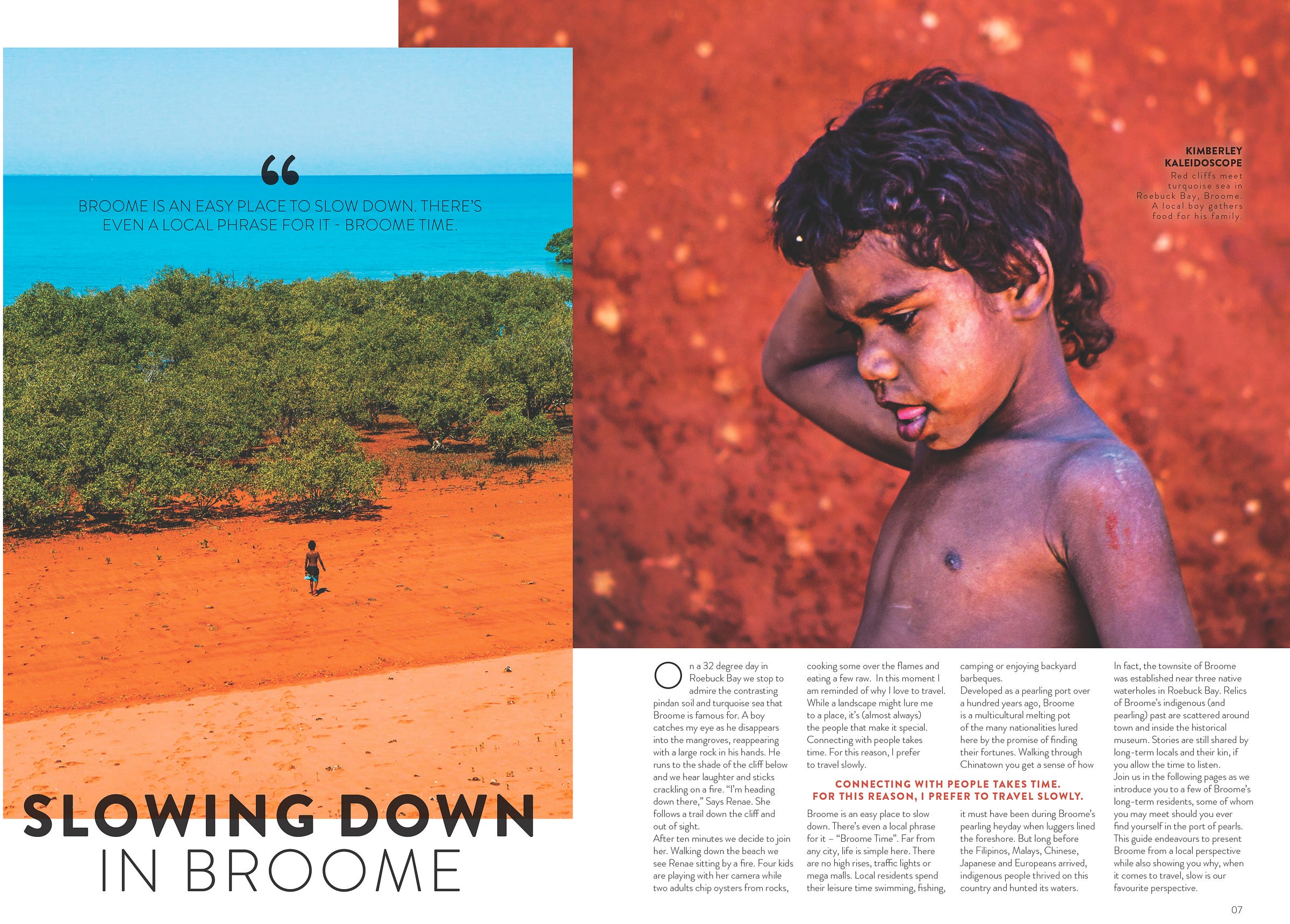Free 20 page city guide
Slow down and settle into the daily rhythm of life in Broome with our 20 page travel guide. Includes slow food, homestays and local tips. Subscribe (it's free!) to receive this guide and future ones.
Slow Travel free city guide: Broome
Slow down and settle into the daily rhythm of life in Broome. Our Slow Travel guides don’t advocate a list of “must see” attractions to tick off, or foreign-owned hotels to stay at. Instead of rushing from one tourist hotspot to the next, we encourage you to base yourself in one place and connect with your immediate surrounds in greater depth. This means talking to the townsfolk; exploring via foot, bicycle or public transport; eating with locals; learning the town’s history and traditions and discovering the cultural eccentricities that make the place unique.
We love slow travel. Maybe you will, too.
About slow travel
Slow travel is an offshoot of the slow food movement
In Italy, where traditional culture inextricably links food and community, there began a small uprising in 1986 when fast food giant McDonald’s announced plans to open in Rome’s Piazza di Spagna. Subsequent protests sparked the creation of the ’Slow Food’ movement and by the 90s Slow Food had grown exponentially. Over time, ‘Slow’ subcultures have developed in other areas like the Cittaslow organisation for Slow cities.
In 2004, English journalist Carl Honoré published ‘In praise of slow: how a worldwide movement is challenging the cult of speed’ explaining various aspects of the movement:
“For at least 150 years everything has been getting faster and for the most part speed was doing us more good than harm in that time. But in recent years we’ve entered the phase of diminishing returns. Today we are addicted to speed, to cramming more and more into every minute. This roadrunner culture is taking a toll on everything from our health, diet and work to our communities, relationships and the environment. That is why the Slow Movement is taking off”. Carl Honoré, author.

Advantages of Slow Travel
Meaningful memories: You’re more likely to have enriching experiences than if you follow the standard ‘tourist trail’.
Personal growth: By getting out of your comfort zone you’ll become a more confident person and you may learn new skills.
Increased awareness: By learning about new cultures you’ll be better able to challenge stereotypes.
Social consciousness: You will be contributing more to the local economy.
Saving money: Slow travel experiences are often cheap or free.



